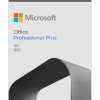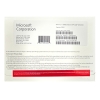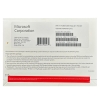The Relationship between Antivirus Software and Data Privacy
Antivirus software plays a vital role in protecting your devices and data from cyber threats, but its role in data privacy raises important considerations. Here’s an exploration of the relationship between antivirus software and data privacy:
Data Collection and Usage:
- Antivirus software requires access to certain data to effectively detect and prevent threats. This may include information about files, applications, network traffic, and potentially even browsing habits. While this data collection is intended to enhance security, it can raise concerns about user privacy.
Transparency and Consent:
- Reputable antivirus providers are transparent about their data collection practices. They should provide clear information about what data is collected, why it’s collected, and how it’s used. Users should have the option to provide informed consent to this data collection.
Balancing Security and Privacy:
- Antivirus software must strike a delicate balance between providing robust security and respecting user privacy. While data is necessary for effective threat detection, providers should adopt measures to anonymize and encrypt collected data to minimize the risk of exposure.
Encryption and Protection:
- Antivirus providers should employ strong encryption protocols to safeguard any data they collect. This prevents unauthorized access and ensures that even if data is intercepted, it remains unreadable.
Potential Risks:
- In some cases, poorly designed or less reputable antivirus software might inadvertently expose user data to cyber threats if they fail to secure the collected information adequately. This highlights the importance of choosing trusted antivirus solutions from reputable providers.
Opt-Out Options:
- Users should have the option to customize the level of data shared with antivirus software. Providing clear settings to control data sharing and adjusting privacy preferences is crucial for users who are particularly concerned about their data privacy.
Third-Party Sharing:
- Some antivirus providers might share aggregated and anonymized data with third parties for research purposes, such as identifying new threats. It’s essential for providers to be transparent about such practices and ensure that data cannot be traced back to individual users.
Privacy Features:
- Modern antivirus solutions often include privacy-enhancing features, such as VPN services or browser extensions that block tracking cookies and unwanted ads. These features reflect a commitment to user privacy beyond threat detection.
Regulatory Compliance:
- As data privacy regulations like the General Data Protection Regulation (GDPR) and the California Consumer Privacy Act (CCPA) become more prominent, antivirus providers must adhere to these regulations and ensure they handle user data responsibly.
User Responsibility:
- While antivirus providers have a responsibility to handle data responsibly, users also have a role in protecting their privacy. This includes reading privacy policies, regularly updating software, and practicing safe online behavior.










